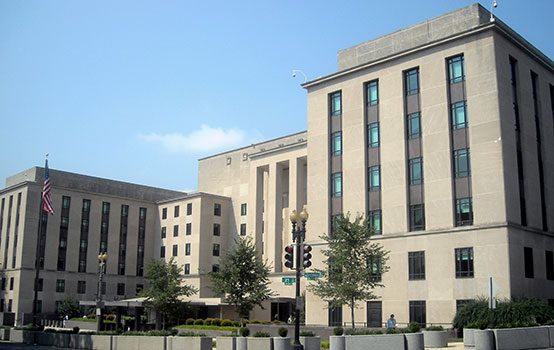The Wrecking of the State Department Hasn’t Stopped

Jason Zengerle’s long profile of Rex Tillerson recounts how Trump’s Secretary of State has presided over the wrecking of the State Department. I was struck by this passage describing the workload that has fallen on the head of the department’s office of policy planning:
With so many crucial assistant-secretary positions — including some responsible for Asia, the Middle East, and South America — still either vacant or filled with acting officials, Hook has had to pick up the slack. “He’s trying to do the job of 30 people [bold mine-DL],” a 25-year veteran Foreign Service officer says. “He’s just knee-walking.” Worse, the office of policy planning, which has traditionally functioned as the secretary of state’s in-house think tank, is now tasked with handling day-to-day operations at the expense of formulating long-term strategy [bold mine-DL].
Any organization that is hemorrhaging people and doesn’t fill countless vacancies is going to be dysfunctional and ineffective in whatever it tries to do. That is what has been happening in the State Department all year, and it doesn’t appear that things will change anytime soon. Career department officials can be forgiven for assuming that the purpose of gutting the department has been to make it so useless that it can be ignored. If Hook is stuck doing the jobs of 30 people, he can’t possibly be doing any of their jobs or his own well. That’s not a criticism of him, but a statement of the obvious. Even if the people still working the department are superhuman, there is only so much time and attention that they can devote to “picking up the slack” for all the positions that remain unfilled. In practice, that means that there won’t be enough people to do the basic work of maintaining relationships and representing the U.S. in international fora. It also means that important warning signs of potential problems and possible openings for diplomatic engagement are going to be missed because people at the department are too busy trying to keep their heads above water.
There was another anecdote about Hook that provides an example of how department officials are being demoralized:
I noted that on his conference table he had a book by Daniel W. Drezner, an international-politics professor at Tufts University who writes regularly for The Washington Post website and is a frequent critic of Trump and of Tillerson. In fact, just that morning, Drezner had published a column calling on Tillerson to resign. I jokingly told Hook that he might want to hide the book. Instead, R.C. Hammond, Tillerson’s communications director, who was sitting in on the interview, immediately seized it.
“This is the guy who has the thing at The Post?” Hammond asked Hook. “Where’s your trash can?” He made as if he was going to throw the book across Hook’s office. Hook raised his hand to block Hammond.
“No!” Hook said. “It’s a book on policy planning! This was written before Rex Tillerson was even considered.”
“Trash can,” Hammond reiterated [bold mine-DL]. Hook kept his hand up. The fifth of Bombay gin and the liter bottle of tonic water on his desk suddenly made more sense.
Note that the book had nothing to do with Tillerson or Trump, but was concerned with the subject that Hook is supposed to know about in order to do his job. Because it happened to be written by someone who later became a critic of Hammond’s boss, Hammond wanted Hook to throw it away and disregard what it said. If that is the environment that department officials have to work in, it is a small miracle that there is anyone left.
As I’ve said before, the wrecking of the State Department matters for a few reasons. It is driving out career diplomats with decades of experience and relevant regional and policy knowledge that this administration in particular desperately needs. It is discouraging talented people from wanting to work there, and so ensures that the damage to the institution won’t stop in four or eight years. Finally, it is seriously harming the main institution in our government that specializes in matters of diplomacy and development, and the weaker that institution becomes the more militarized our foreign policy will be to the overall detriment of the country and the world.
Comments